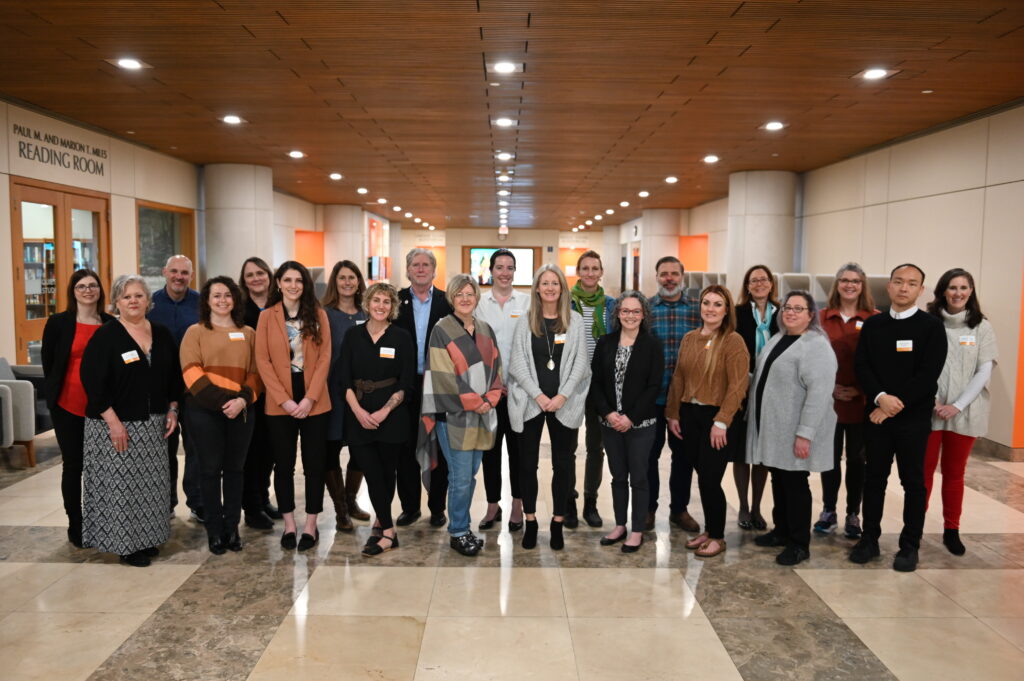 Goal area one of the university’s Strategic Vision, Cultivating the Volunteer Experience, calls for collaborative and experiential educational opportunities that are responsive to the needs of learners. While many efforts are being lifted to respond to this call, one unifying strategic investment that UT has named is a sustained focus on our scholars’ well-being.
Goal area one of the university’s Strategic Vision, Cultivating the Volunteer Experience, calls for collaborative and experiential educational opportunities that are responsive to the needs of learners. While many efforts are being lifted to respond to this call, one unifying strategic investment that UT has named is a sustained focus on our scholars’ well-being.
Following recommendations from the Strengths Advisory Council, the Office of the Provost and the Division of Student Success committed to extending UT’s investment in student well-being into the classroom. In August 2022, Dr. Sally Hunter began her appointment as the Volunteer Experience faculty director. In October 2022, faculty members were invited to apply to become Volunteer Experience Faculty Fellows. In January 2023, the 18 faculty fellows from all nine undergraduate colleges were announced to the university community.
As spring 2023 comes to a close, these 18 Volunteer Experience Faculty Fellows are halfway through their fellowship. Over the course of the semester, through a partnership with Teaching and Learning Innovation, the fellows have engaged in workshops and sharing best practices regarding teaching pedagogies that support the well-being of students and faculty alike. One of the goals of this initiative is for the fellows to engage their colleagues in dialogue regarding practices that are best suited to their field and classroom type. Each fellow has submitted their tentative plans for fostering these discussions or creating resources for their own units.
“Working with colleagues across campus and disciplines has helped me identify shared challenges we all face every day and develop straight-forward tools to make us better faculty and members of our shared community,” Laura Knight, assistant professor of practice in the Tickle College of Engineering, said. “Although generally, STEM students and faculty might demand a slightly different set of tools than those used in a humanities classroom, by working together, we are realizing the similarities and synergies of teaching with a shared PERMA model.”
The fellows have had many discussions over the course of the semester on the importance of introducing tools and language that are an easy lift to support the excellent teaching that is already occurring on this campus.
“Promoting and fostering the well-being of our students will enable better and more meaningful classroom experiences for all learners,” Jennifer Fowler, distinguished lecturer in the College of Arts & Sciences, said. “Creating an environment where students feel connected to their classmates and teachers, and where they are engaged, motivated, feel valued and a sense of accomplishment, can make a real difference in their academic careers.”
This group will reconvene in August 2023, and the faculty fellows will then work in small groups to: (a) create both general and field-specific toolkits of well-being resources; (b) host informal sessions to speak with small groups of colleagues about the resources that are available and share existing practices; and (c) present more formally in venues such as department retreats, department faculty meetings, and Faculty Senate.
“While the focus of this initiative is on tending to the well-being of our students through their most common touchpoint on campus, it has been so rewarding to see the community being built amongst the fellows themselves,” Hunter said. At the final meeting of the semester, the fellows shared not only their tentative plans for fall 2023 but also the way they were affected by the opportunity to share interdisciplinary ideas and form relationships across colleges.
Those interested in learning more about the PERMA Model of Well-Being and how to integrate an asset-based framework in the classroom can visit the Teaching and Learning Innovation resource page on Fostering the Volunteer Experience.